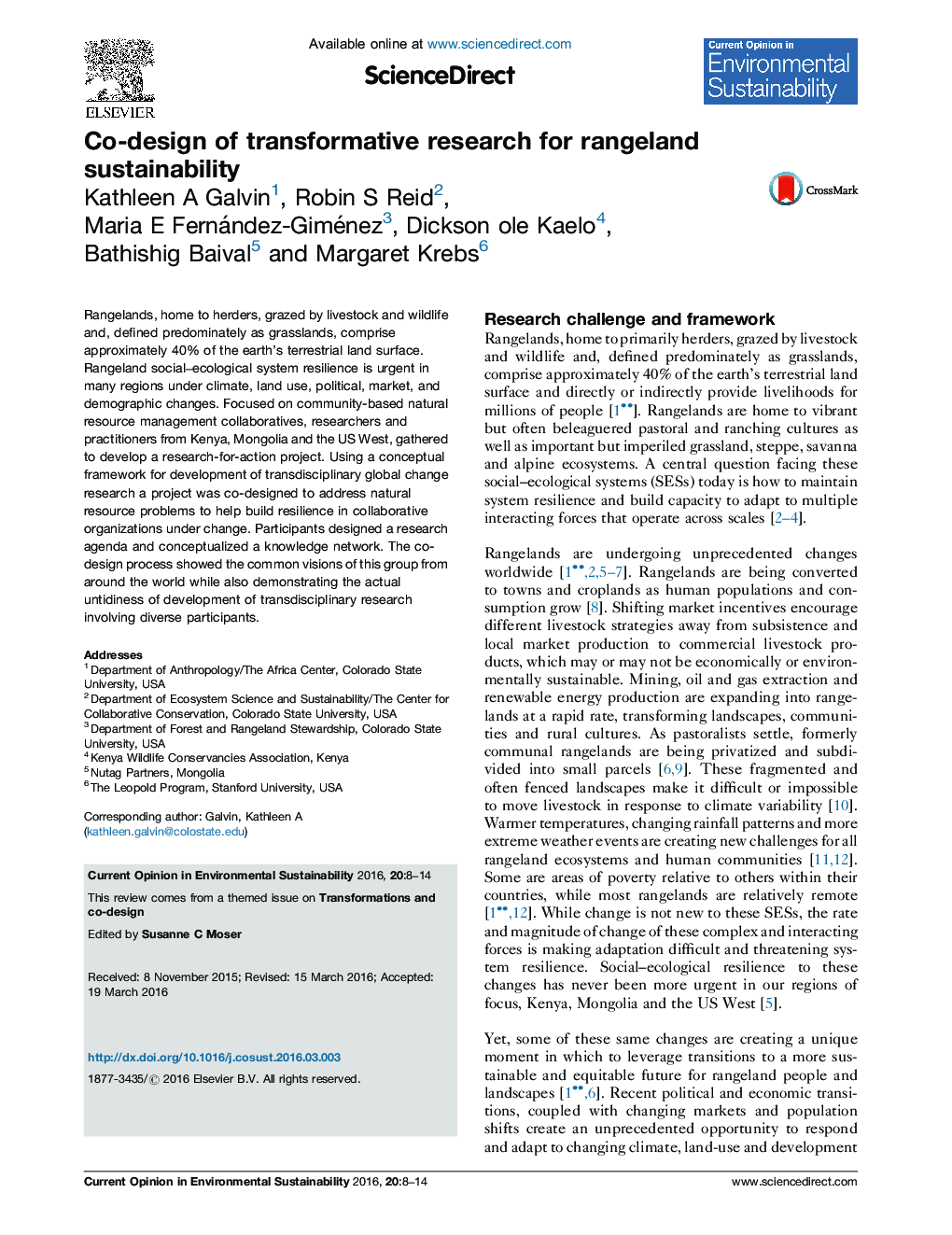| Article ID | Journal | Published Year | Pages | File Type |
|---|---|---|---|---|
| 1051303 | Current Opinion in Environmental Sustainability | 2016 | 7 Pages |
•The rate and magnitude of changes to rangeland systems is threatening adaptation.•Co-design of knowledge for rangeland resilience requires a transdisciplinary approach.•The co-design process proved, in practice, to be complex and non-linear.
Rangelands, home to herders, grazed by livestock and wildlife and, defined predominately as grasslands, comprise approximately 40% of the earth's terrestrial land surface. Rangeland social–ecological system resilience is urgent in many regions under climate, land use, political, market, and demographic changes. Focused on community-based natural resource management collaboratives, researchers and practitioners from Kenya, Mongolia and the US West, gathered to develop a research-for-action project. Using a conceptual framework for development of transdisciplinary global change research a project was co-designed to address natural resource problems to help build resilience in collaborative organizations under change. Participants designed a research agenda and conceptualized a knowledge network. The co-design process showed the common visions of this group from around the world while also demonstrating the actual untidiness of development of transdisciplinary research involving diverse participants.
